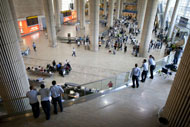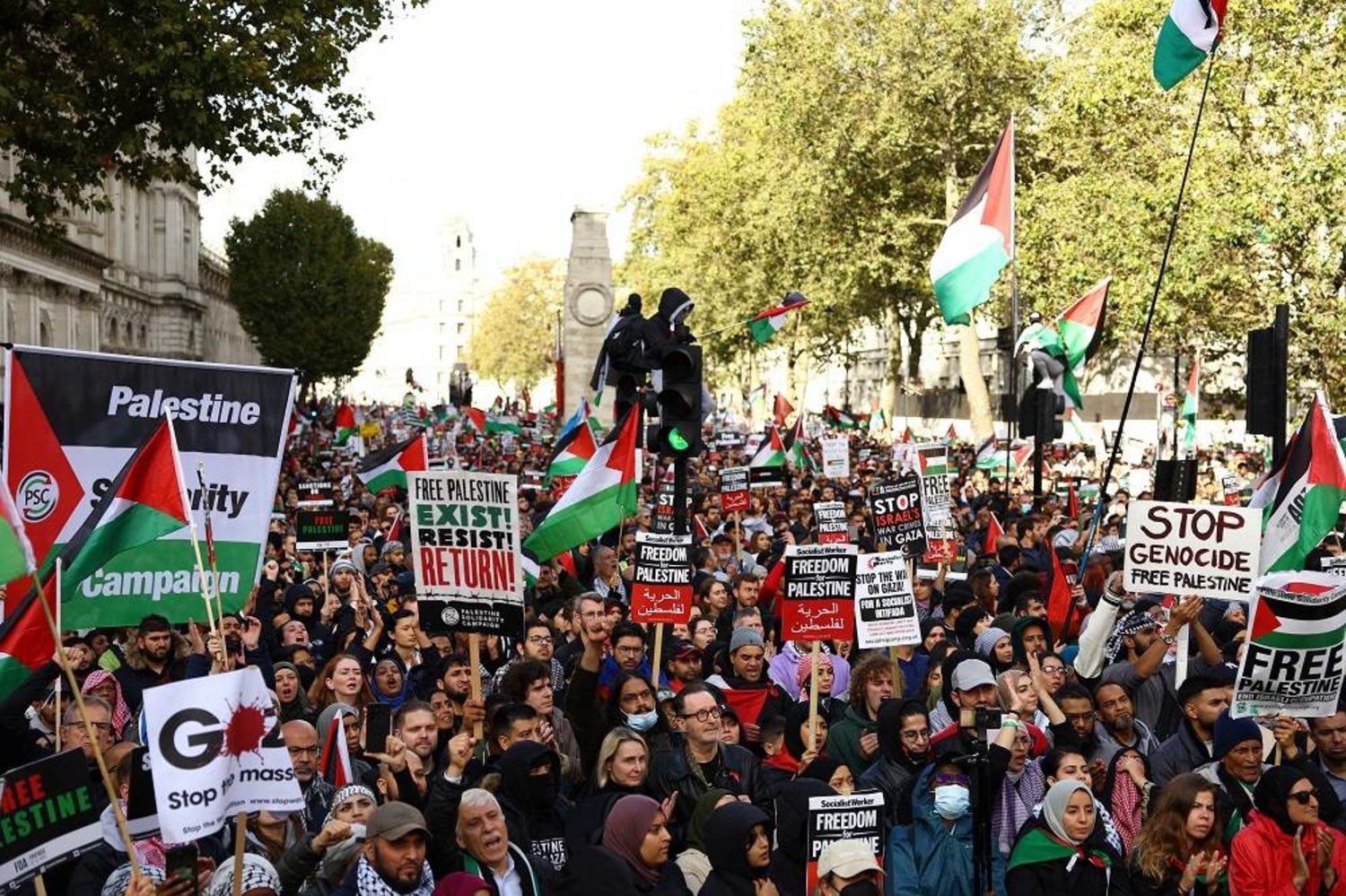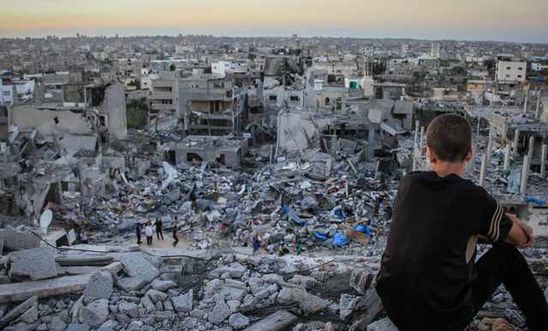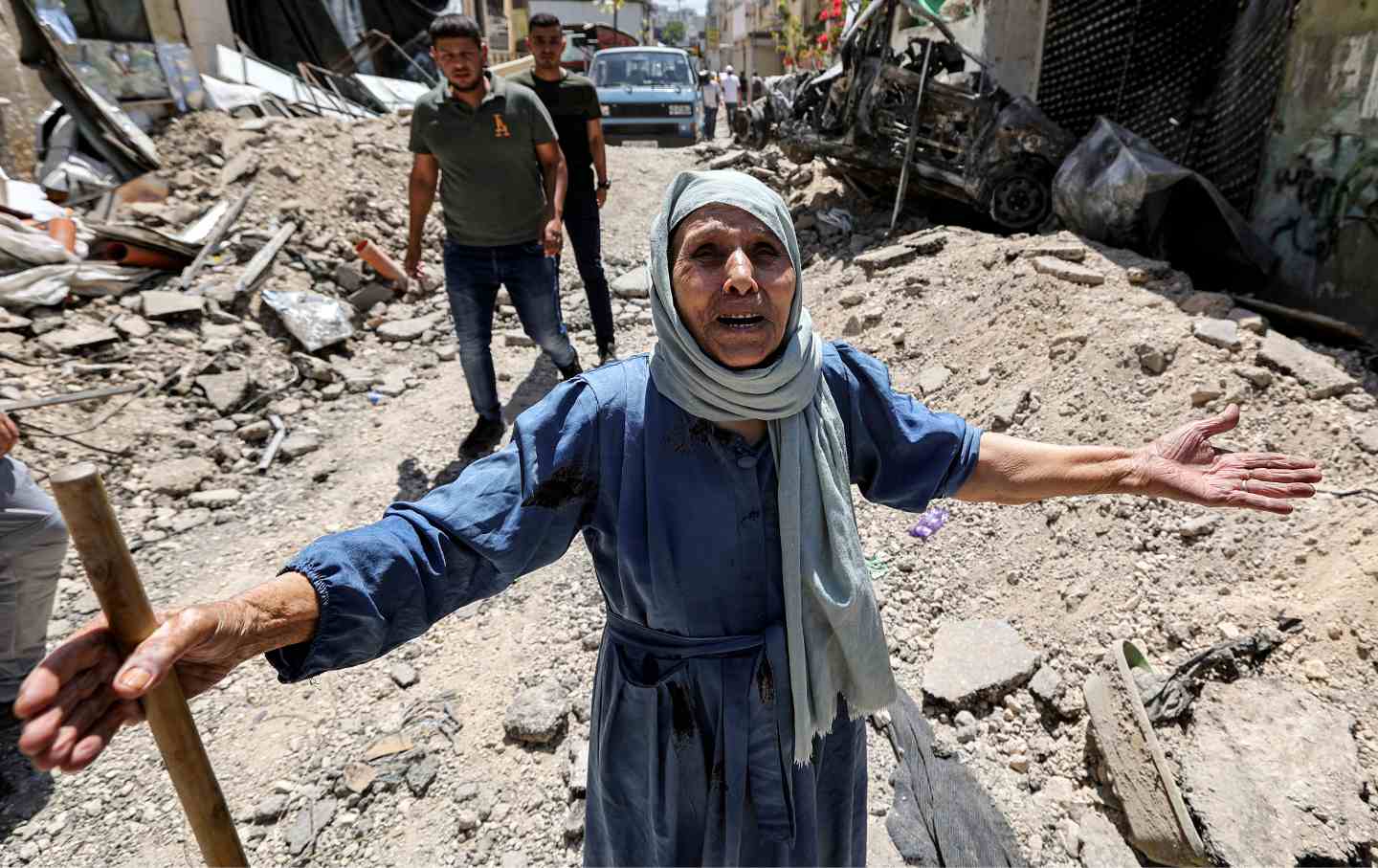This is déjà-vu for many Palestinians. The most recent truce, declared by President Mahmoud Abbas on November 25 seems to be reflecting a time and place we have visited before and several times over.
While everyone involved – the government, factions and people – are expressing their guarded optimism over whether this time, the fragile truce will finally stick, past experiences are the best indicators of future events, especially when the major points of contention are still firmly in place.
The truce comes after weeks and weeks of brutal Israeli battering of the Gaza Strip. Hundreds of Palestinians have been killed over the past few months, scores of houses demolished, vast areas of land leveled and massive infrastructure damage incurred as a result of Israeli military operations in the Strip. Just over a week ago, Palestinian factions offered a truce to Israel, calling for a mutual ceasefire – that is, the Palestinians would halt their homemade rockets into Israel if the army would halt its incursions into Gaza Strip areas. Israel promptly turned it down, vowing to continue its operations until the Palestinians laid down their arms.
So, naturally, this latest truce was a bit of a surprise to everyone. Abbas, although still not able to agree with Hamas over the formation of a national unity government, somehow managed to pull everyone together in the interest of national security. Even Israeli Prime Minister Ehud Olmert, perhaps feeling the heat of his failed policies in, first Lebanon, and now the Gaza Strip, accepted this truce in a new light.
So, for now, a ceasefire in place in the Gaza Strip – why the West Bank was excluded remains unexplained – and the Palestinians have promised to halt the firing of Qassam rockets into Israel, suicide bombings or attacks against Israeli targets while Israel has withdrawn from all Gaza Strip areas. Furthermore, Abbas has ordered the deployment of 13,000 security personnel from the National Security Services along Gaza’s border with Israel to ensure the implementation of the truce. The President also announced that anyone who violates the agreement would be duly arrested. Barring a single incident hours after the truce went into effect when rockets were fired into Sderot, all has been quiet on the Gaza front.
The key question here however, is for how long? Over the past six years of the Intifada, there have been more than one truce put in place between the Palestinians and Israel, all of which have fallen apart within weeks, sometimes even days. This truce is already teetering at the dangerous brink of collapse. On the morning of November 27, Israeli forces in the West Bank town of Qababitya killed 22-year-old Mahmoud Bakr, a member of the Naser Brigades, the military wing of the Popular Resistance Committees. As a conclusion to its operation, Israeli troops also killed 55-year-old Fatimeh Nazzal who apparently tried to help save Bakr’s life after he was shot several times. Soldiers then opened fire at Nazzal as she attended to the bleeding Bakr.
Although, strictly speaking, the truce does not include the West Bank, it is common knowledge that events in the Palestinian territories do not occur in isolation of each other. The Palestinian people, already grossly divided between those inside Israel and those in the Diaspora’s refugee camps are determined not to allow Israel to divide those in the West Bank from the Gaza Strip. For them, what happens in the Gaza Strip is also applicable to the West Bank and vice versa.
So, if Israel’s plan is to placate the leadership by lifting its heavy hand temporarily off the Gazans only to crack down with an iron fist on the resistance in the West Bank, the fate of this truce will be no different than the ones that came before it. Already the Islamic Jihad leadership has urged Palestinian factions not to accept any truce that does not include the West Bank, warning against holding the Islamic Jihad responsible for any retaliatory operations against Israeli attacks.
Apparently, the public is equally as wary about the success of any long-term calm. A quick vote posted on the Maan website shows that 51.8% of respondents believed the truce would not hold in comparison to 25.8% who said they thought it would.
It seems clear that the only way such an initiative may live to see another day is if ironclad guarantees that Israel will not breach the truce in the name of its “war on terror” are securely put in place. In the past, Israel has assassinated Palestinian activists while a truce was in effect under the pretext of its “security.” Besides, the violence of the occupation does not only manifest itself in the form of assassinations, incursions and home demolitions. In the West Bank in particular, the Apartheid Wall continues to be built and hundreds of Israeli military checkpoints hinder the movement and lives of hundreds of thousands of Palestinians each day while 10,000 Palestinian political prisoners continue to languish in Israeli jails.
If these issues are not seriously addressed, everyone, including Israel, the Palestinians and the international community know that it won’t be long before the next Israeli air strike or incursion is carried out and the Palestinians make a counter attack in the name of those they lost and the land they continue to defend.
Joharah Baker is a Writer for the Media and Information Programme at the Palestinian Initiative for the Promotion of Global Dialogue and Democracy (MIFTAH). She can be contacted at mip@miftah.org










